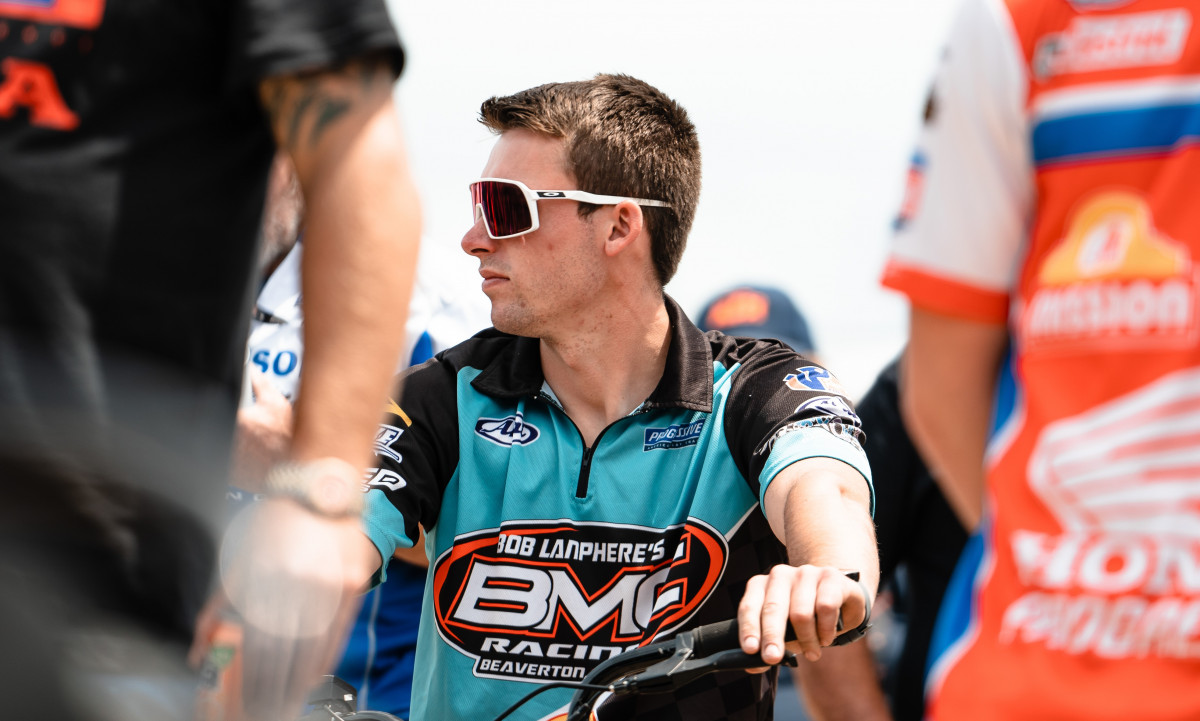
Davis Versus Goliath
Throughout all professional sports, there’s always a “next big thing” – that uber-talented prospect next in line for the throne in question. And, for a time, Davis Fisher was Progressive American Flat Track’s next big thing.
Fisher burst onto the pro scene in 2014, winning two races and falling short of claiming the Parts Unlimited AFT Singles presented by KICKER title in his rookie attempt by a single point. He more than made up for that near miss in his sophomore season with a dominant, four-win march to the crown.
That remarkable beginning to his professional career earned him not just a berth in the Mission SuperTwins presented by S&S class for the ‘16 season and the aforementioned “next big thing’ tag, but a coveted slot inside the factory Harley-Davidson team. And along with it came the high-profile distinction of debuting the fabled marque’s all-new XG750R in competition.
But the combination of first-year rider and first-year bike failed to deliver at the level Harley had initially hoped. Davis' once rocket-like career trajectory failed to reach escape velocity, and he promptly fell back to earth ahead of the 2017 campaign.
“We didn't have the best year,” Fisher admitted. “(Harley) believed their bikes should run up front so they decided to try a different rider. Okay. Good luck. And, as my results weren't the greatest on the Harley, I didn't have many people calling me either.
“Well, I've still got a lot of goals I want to accomplish in the sport.”
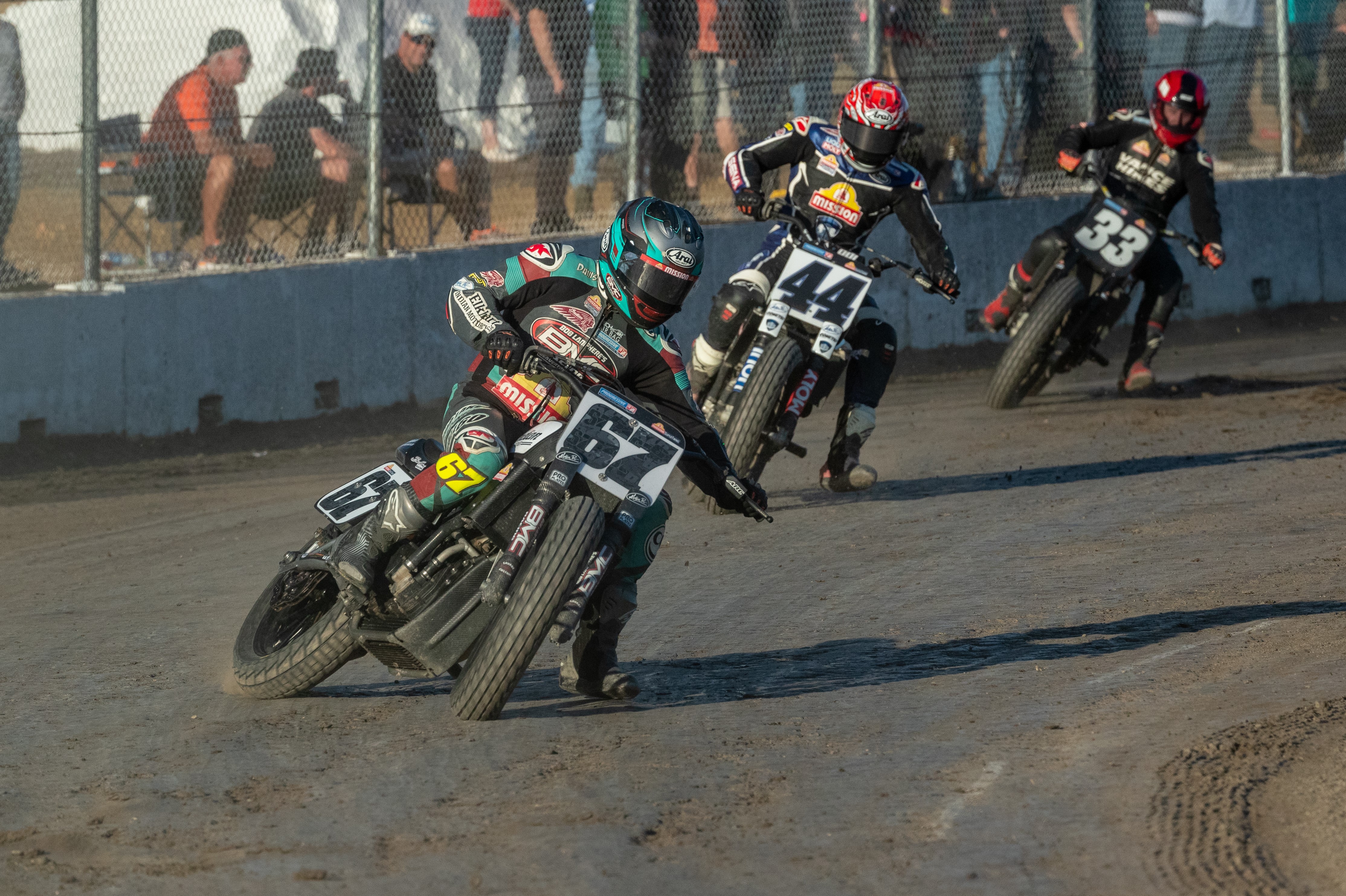
At that point, Davis chose the hard road because it was the only one that remained other than simply parking it. He leveraged his one-year factory salary, augmented it with some help from his personal sponsors, and built his own Kawasaki-based racebikes in his garage. And with $800 left to his name, he headed off to Daytona and raced toward the next several years of his life.
After getting the taste of the lifestyle of a factory star – one where you can train like an Olympian, focus on honing your riding skills during the offseason and between rounds, fly into events, and then concentrate solely on performing to the best of your ability at the track – Fisher has lived a very different reality in the years since.
Now it’s not only on him to go head-to-head with the best riders on the planet when the lights go green, but the entire infrastructures supporting them, which include the best engineers, mechanics, tuners, and even truck drivers. As a result, what formerly stood as the most basic aspect of his job – training – is now a luxury that’s frequently out of reach.
Asked for a run-down of his duties beyond twisting the grip and hunting top fives, Fisher paused for a moment to consider where to even begin.
“Some weeks I'll work on the van. And then the trailer. I went through about six trailer bearings over the past year. Just having failures with that – people don't think about the little stuff like that that happens.
“I do basically all the chassis stuff. I leave the heavy-duty motor stuff to Ben Evans, who spends countless hours helping me out. But I’ll change the oil, change the tires, figure out if the timing’s right, change ECUs, and do pretty much everything cosmetically.
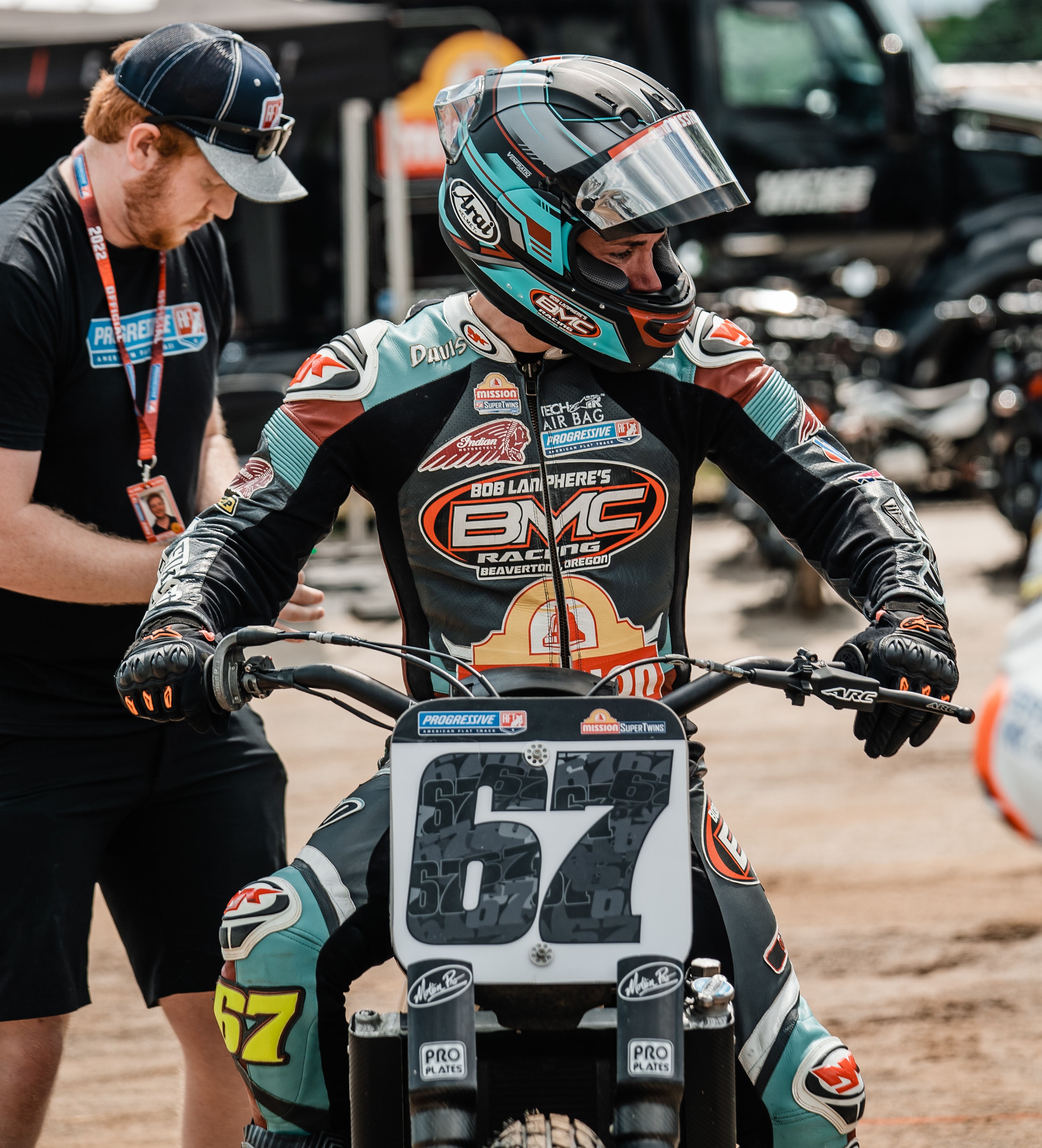
“I drive the truck, so I'll do that all by myself. And then my dad (former pro racer Rex Fisher) will fly in Friday morning red-eye, because he works four 10s.
“My dad will do all the chassis set-up and stuff at the track, but if we get into a pinch, I’ll help out. Mostly, I keep an eye on the computer stuff to make sure it's got the right oil pressure and look at gearing as far as how long it's on the rev limiter.
“And then after the race, we'll get back to the hotel at midnight or 1:00 in the morning, and my dad will have a 6:00am flight, so we have to get to the airport at like 4:00am. And then I have like a 15-hour drive back, depending on where we’re at.
“After I'll get back, I like to spray the bikes down and get them cleaned up just because that calcium and stuff corrodes the bikes and makes them rusty.
“It's a full-time job to do this. Right now, I'm struggling to find time to train, by the time I work on the van, work on the trailer, and whatever else needs to happen.”
While, as Davis explained, he turns to the expertise of Mission Roof Systems crew chief Ben Evans for his more involved engine work, even that eats up miles and hours.
“Ben is based five hours away. There's been times I've left Michigan – where I stay with my girlfriend during the season – at six-o'clock at night to get to Ben's by midnight, and we'll work until 4:00 in the morning. And then I'll drive back home, get there at 9:00am, put the motor in the bike, and then get on the road to leave for the race by 4:30pm that night. That's how the Red Mile went this year.”
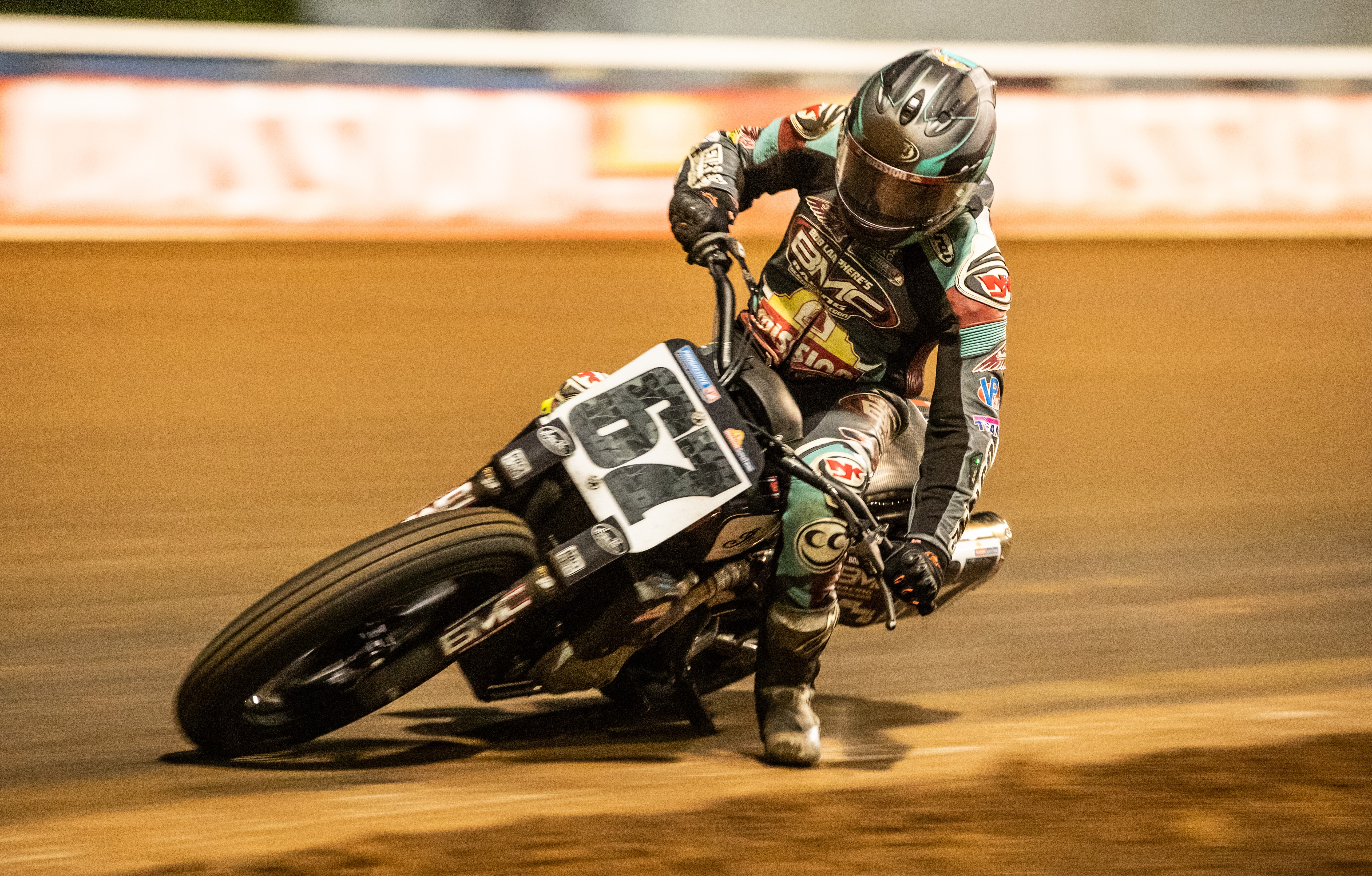
Despite that never-ending grind and toil, none of it matters if Fisher is unable to pull it all together and compete at an elite level regardless of how starkly his situation may contrast with those he’s attempting to beat.
Backed by Bob Lanphere's BMC Racing, Fisher has demonstrated on numerous occasions that the potential and talent that initially earned him his “next big thing” tag still very much reside inside him, even if occasionally clouded by his privateer existence.
Since losing his factory ride, Fisher has ranked inside the Mission SuperTwins championship top ten every season while etching up 15 top fives, including four podiums, along the way.
The most monumental of those almost never came due to a perfect storm of the travel, mechanical, and fatigue issues he’s always battling to overcome.
Davis explained, “We weren’t sure if we were even going to go to the season finale at Charlotte last year. The second-to-last race was in Sacramento so we were on the West Coast, and afterwards, I went back home (to Oregon). We were sitting sixth in points, and there was quite a big gap to fifth. We couldn't really gain anything.
“So we were thinking about just staying home. But at the last minute we said, 'Okay, we'll just take the van,' – usually I tote around a 14-foot trailer. I jumped in the van and drove to Michigan and raced Hastings to try to make some gas money, and then drove down to Charlotte the next week.”
It didn’t get much easier even after he arrived at Charlotte Motor Speedway.
“During the day, we broke a radiator hose and with just the van, we had no spare parts. Luckily Indian carries some parts that you can buy at the track.
“And then during the Main, my bike started cutting out a couple laps before we had a red flag. So I just wiggled some wires during the stoppage, and we took off after the red and had no issues.”
That good fortune provided Fisher the stage he needed to remind the paddock of his innate skills. Late in the Main Event, he tracked down two of the biggest talents and heavily supported riders in the paddock in multi-time national champions Jared Mees and JD Beach, threw in a pass on Beach and then went under Mees in the season’s final corner.
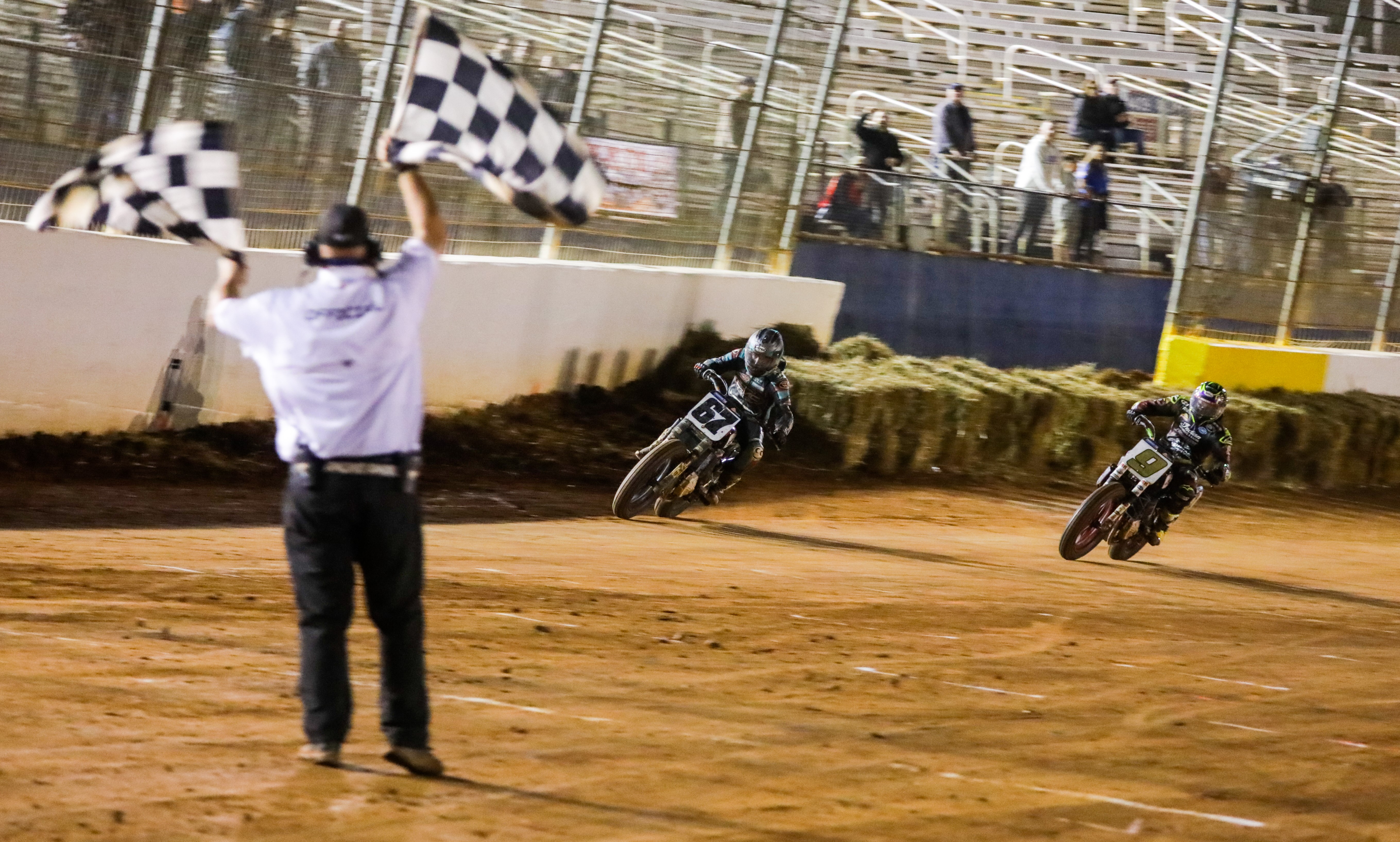
In doing so, Fisher earned his maiden premier-class victory by 0.114 seasons.
“I ended up tearing the bikes apart during the winter and found that my foot shifter wire was rubbing in between the frame and the motor, so we were really close to having a mechanical there.
“But yeah, it meant so much to my team to win and gave me a lot of confidence coming into this year.”
The privateer life is something that is casually understood by your typical Progressive AFT fan, if not the full depth of it, and certainly not what it’s like to live it from day to day.
But those who do truly understand cherished Davis’ shining moment, even if it came at their expense.
Bronson Bauman, who ran a similarly sized privateer Indian program in 2021, said, “Watching Davis Fisher win Charlotte last year… I know what he's doing. He's doing all the same stuff I was. He's the one working on the bikes every week, prepping them, driving them. He picks his dad up at the airport and goes racing. I was so excited for him.”
While a milestone achievement that can never be taken away, last year’s win is officially history. He’s back at it again, and the 2022 season has worked hard to remind Fisher that, while now a race winner, he’s still a privateer and everything that entails.
“At Volusia, we had issues with one bike, so we went to our backup bike. And then in the Main Event, I ended up scattering the motor. So now we're down to one motor. Luckily, Roof Systems of Dallas, Texas, has given us a motor to run in our back-up bike for worst case scenarios.
“At the Red Mile we actually had a motor problem. So on the second day we went to the Roof Systems motor and ended up getting second place.
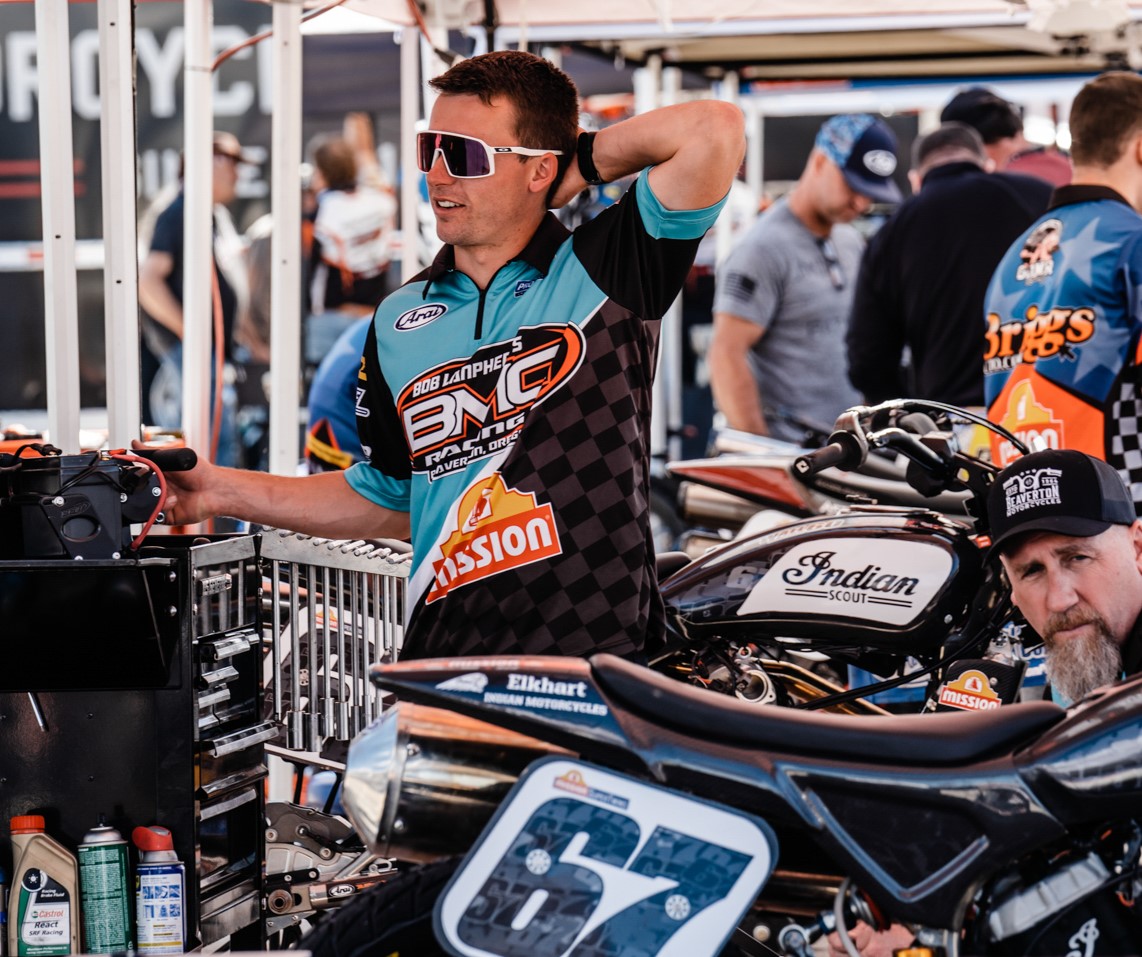
“But at this point now, we're getting the motor we scattered repaired. So, it's kinda been living the season on the edge, just having one bike that's completely our own.”
While ‘22 hasn’t exactly gone to plan, that runner-up finish at the Red Mile was yet another highlight that helps provide the mental energy needed to continue the grind.
Fisher said, “It feels really good to beat some of those factory guys on our little team. Their hotel budget is bigger than my race budget on the weekends.
“When I have a bad weekend, it kind of gets frustrating. I'm like, ‘Man, some guys don't have this much of a worry, working on the bikes, making it to and from the track with a 200,000+ mile vehicle. And they're making so much more money than me. I’m putting in all this work and still not able to make that much of a living compared to them. It's like, I could work at McDonalds and make more money than I am right now.
“Our budget is so short that to have a motor failure, that pretty much just knocks us out. And we're just short of a lot of seat time with how our budget is. Other teams can go practice during the week and they have their own mechanic working 9-5 to get things going, where I also have to worry about finding time to train.”
While it can be cathartic to beat bigger name riders on bigger teams with bigger budgets, those racers remain the target in more way than one.
The goal is to beat them and join them. The rule changes implemented to level the playing field have been especially tough to negotiate for smaller privateer efforts. But if it works out as intended and the series attracts additional manufacturer support, Fisher is an obvious hire for a brand looking to get more involved in the sport.
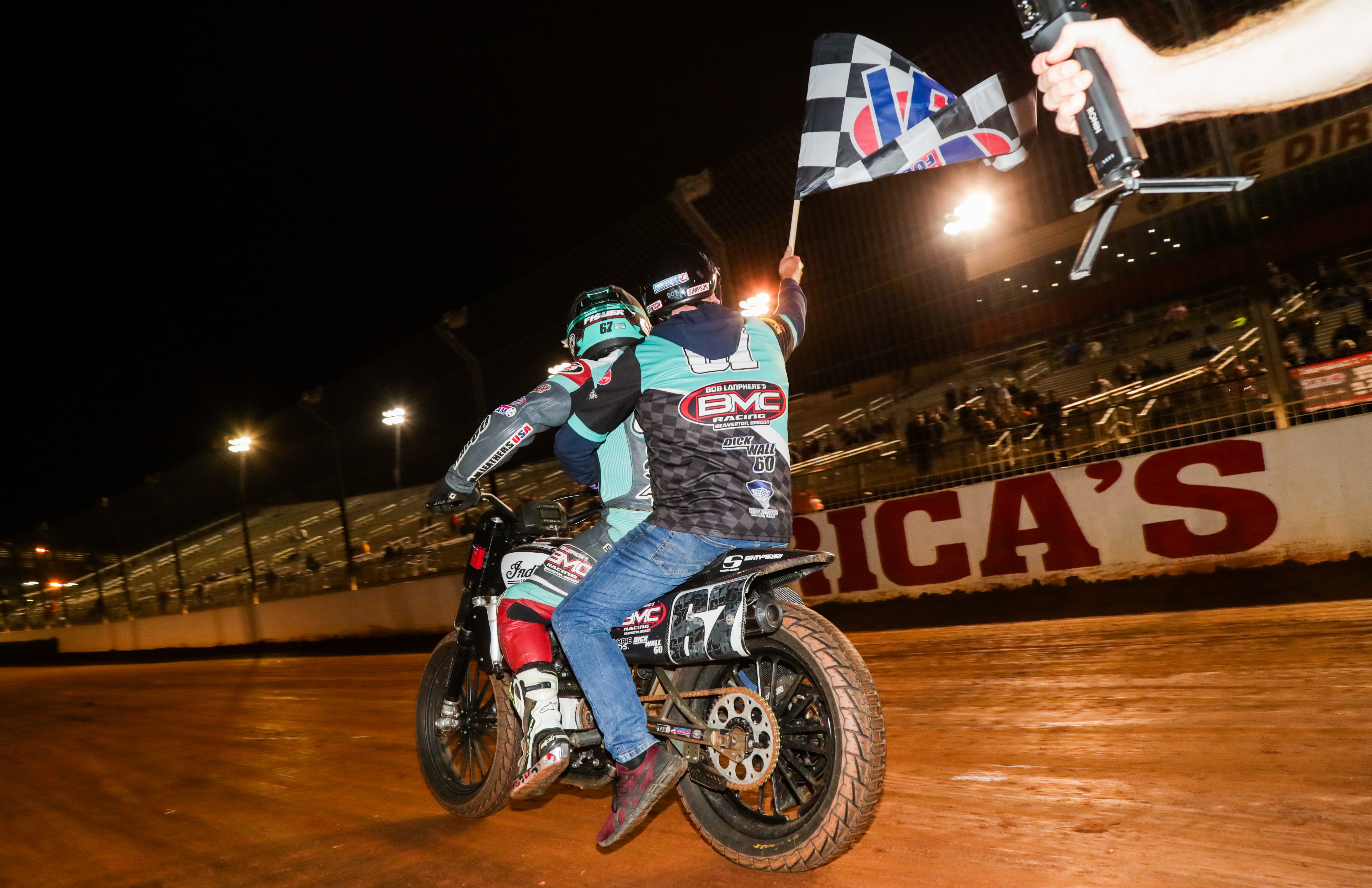
Whatever short-term pain it’s causing him in 2022, the hope is it will lead to long-term gain and provide him with the level playing field he needs to properly showcase his caliber.
At 24 years old, Davis has another decade or two to compete at the sport’s highest level. However, his on-the-job apprenticeship the past several seasons have granted him the skills necessary to remain the paddock for the rest of his life if he so chooses – be it as a team manager, crew chief, rider coach, or any combination thereof – or even run a success business outside of the sport.
How’s the ancient proverb go? Give a racer a ride and he’ll have a job for a season. Teach a Fisher how to run a team and he’ll have a job for a lifetime.
Something like that anyway.
“I've learned a lot the past few years doing it on my own, working on the bikes during the week. I wish I was a little bit braver to dig into the motors and learn the basics of that. When I go down to Ben Evans,’ I'll watch him tear the thing apart and put it back together. And after the Red Mile when my motor went south on the first day, I ended up taking the heads off of it and found the problem, which allowed me to order parts to take to Ben to put back together. So I'm getting a little bit braver being able to pull a motor apart. If I could do that it would make me that much more of a handy mechanic,
“And also, just being able to run a team could do me a favor and provide the experience to maybe run a business someday. There's a lot that goes into it, dealing with sponsors and getting everything lined up. For example, I've got two motors apart right now, and I’m lining up parts… I need to call and talk to the transmission guy and make sure he's on schedule to get it back to us, and make sure we've got rods from Indian because there has been some shortages of certain parts, and just talk to people to make sure everything happens on time.”
Again, short-term pain for long-term gain. But before any of that comes into play, his initial post-Harley sentiment regarding his racing career still rings true.
“I've still got a lot of goals I want to accomplish in the sport.”
Latest news

OTB Racing Announces Expanded Five-Rider Program for 2026 Season






























